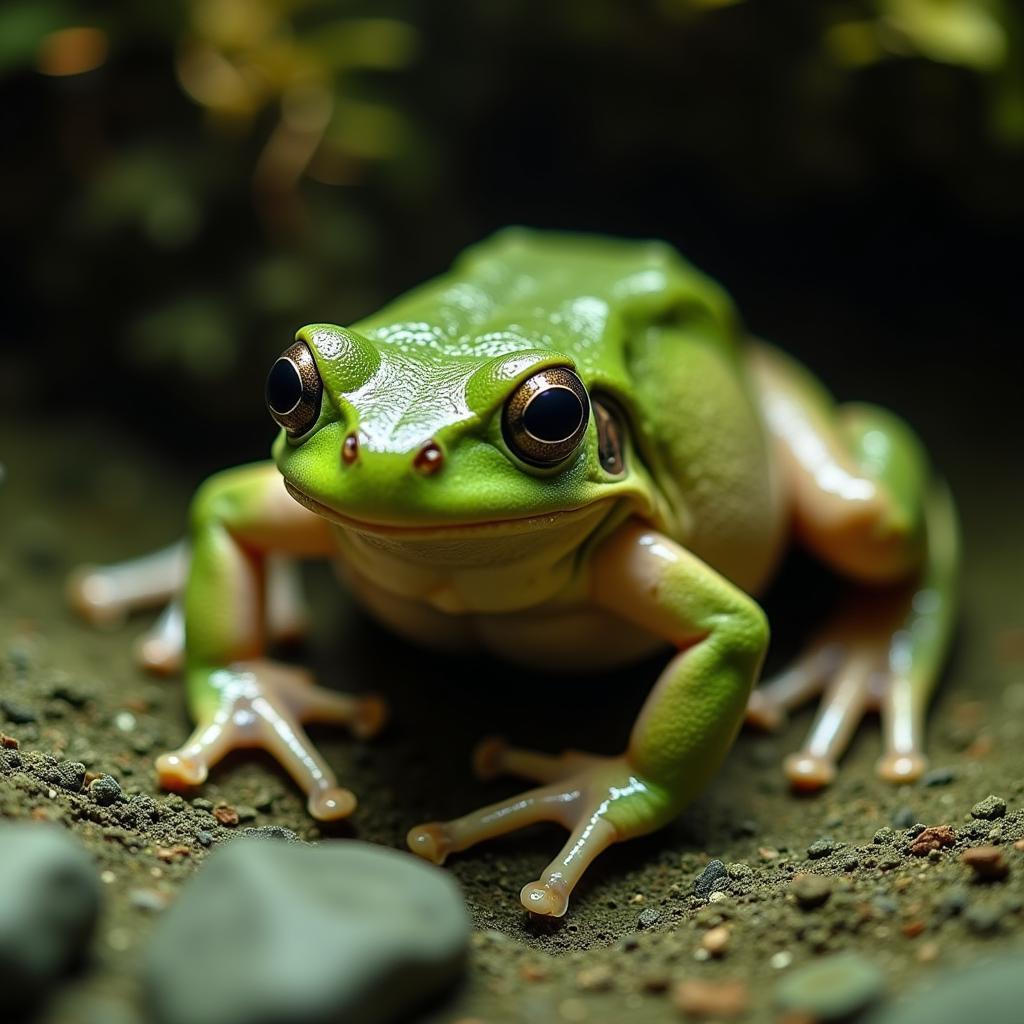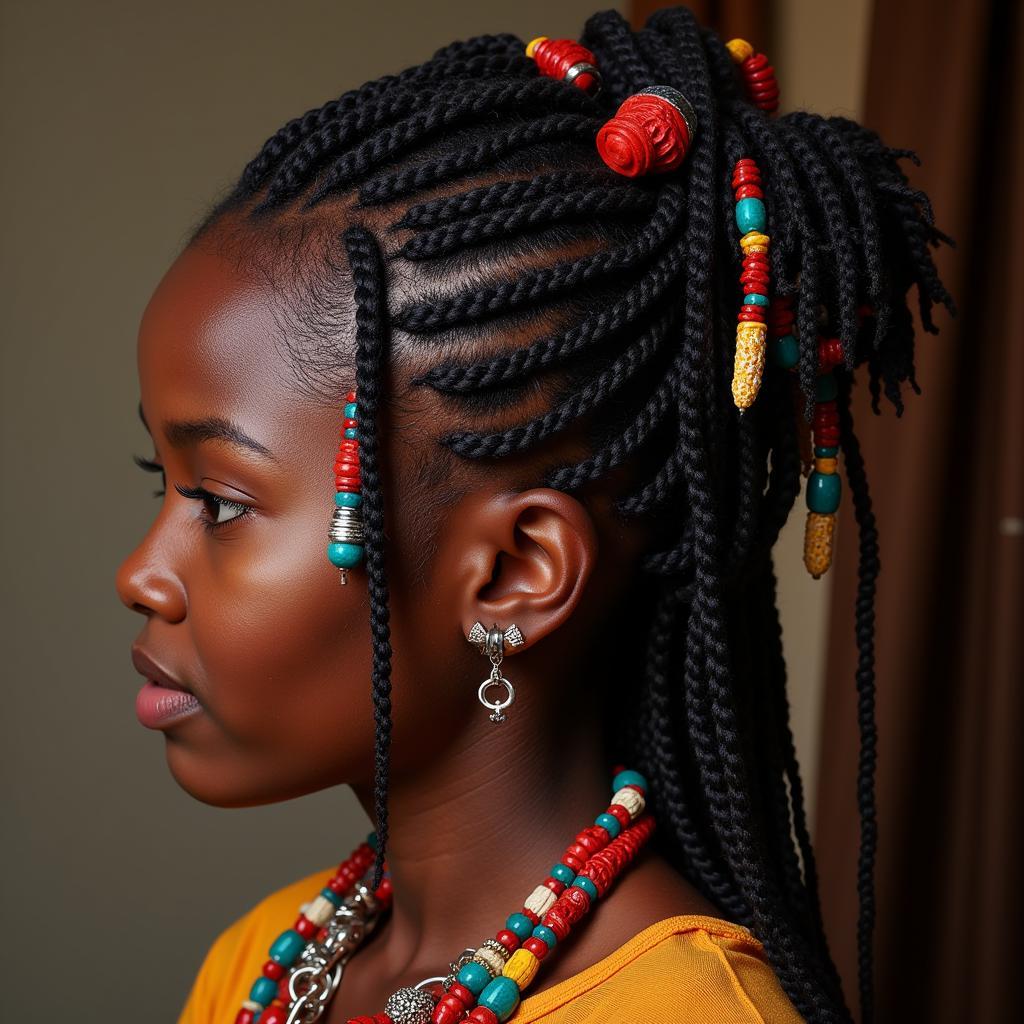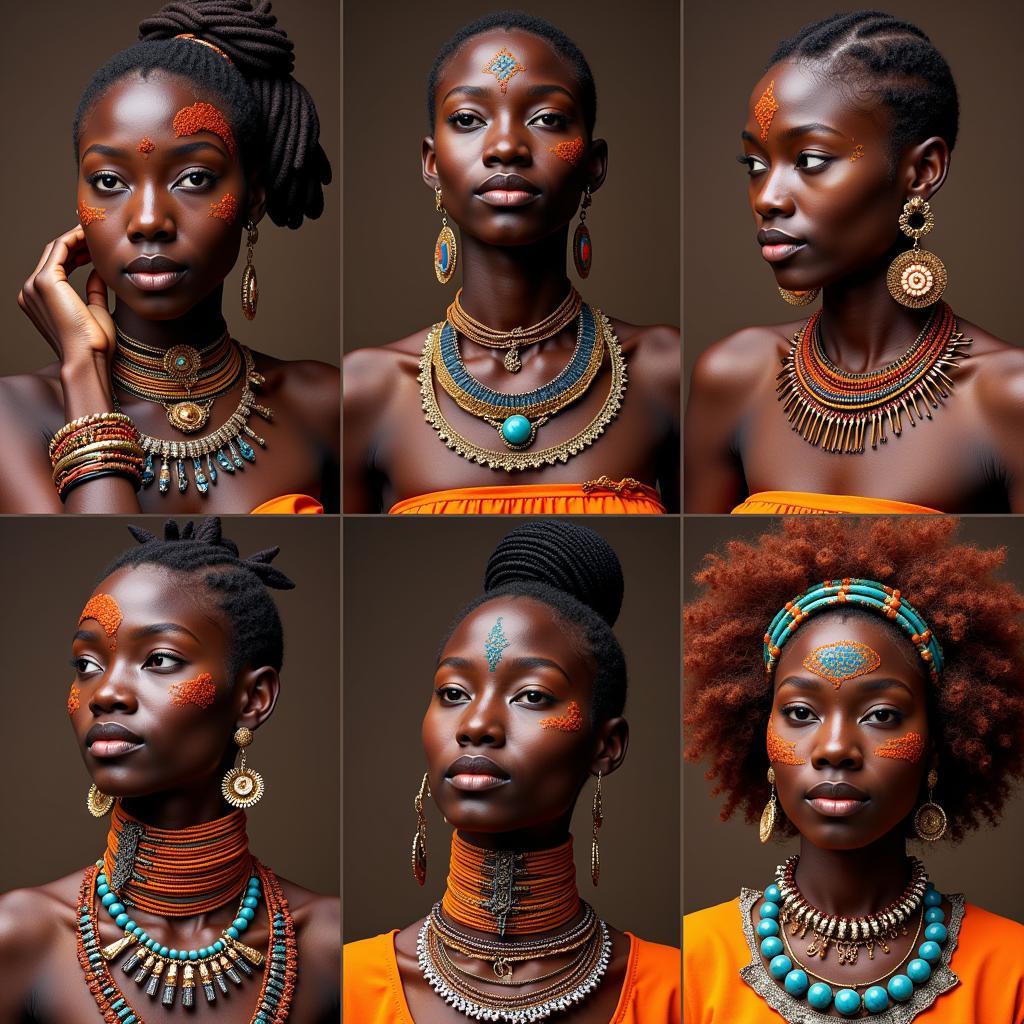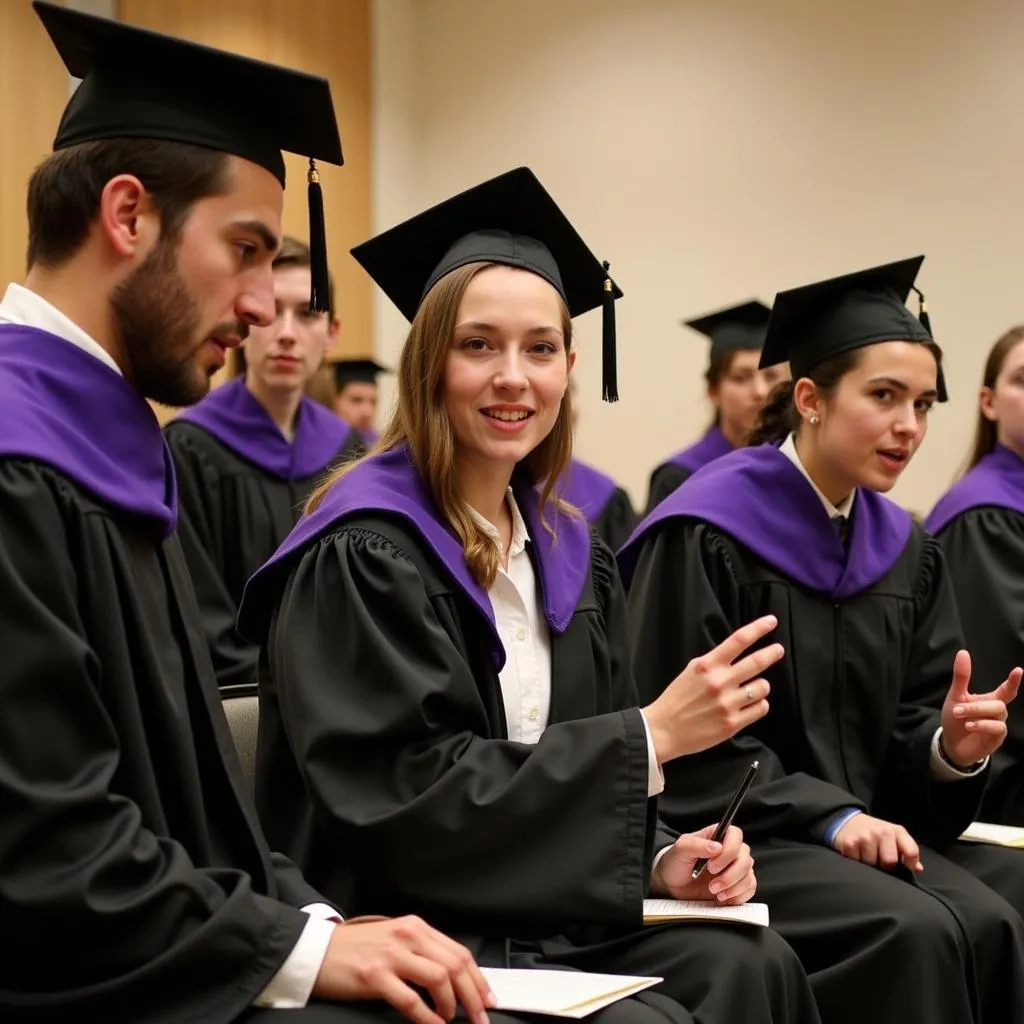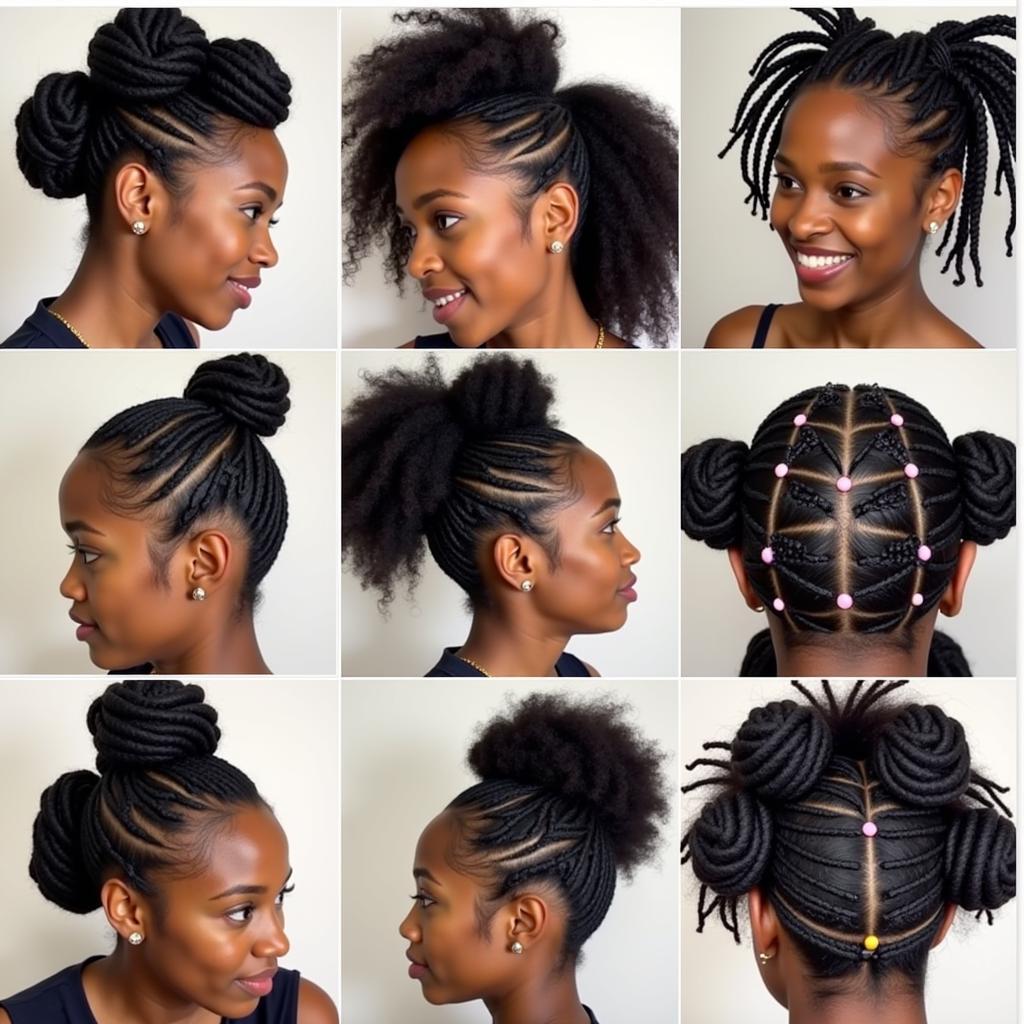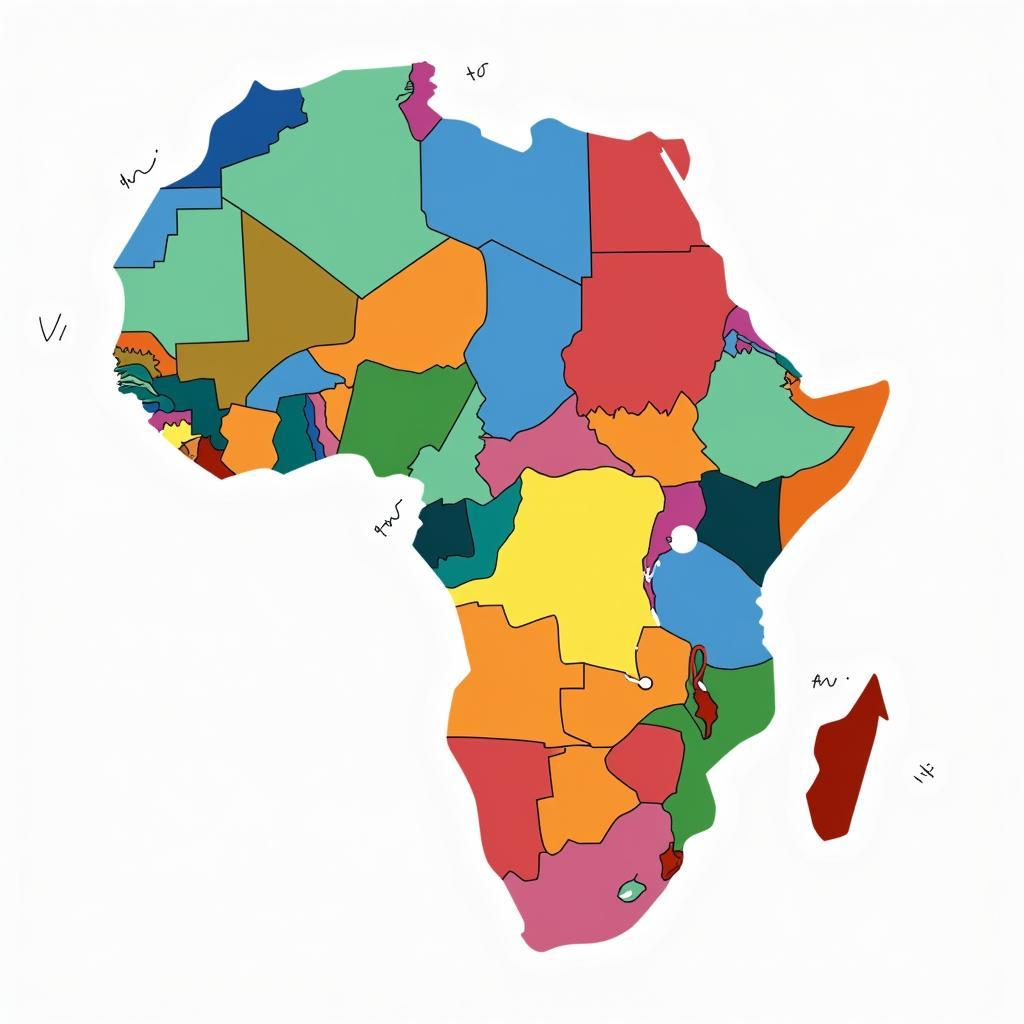Exploring the Rich Tapestry of African Gods
African Gods represent a vibrant tapestry of beliefs and traditions across the continent. From powerful deities to ancestral spirits, these figures play a crucial role in shaping cultural narratives and understanding the world. 7 african gods Let’s delve into this rich spiritual landscape, exploring the diverse pantheon of African gods and their significance.
Understanding the Diverse Pantheon of African Gods
African traditional religions are incredibly diverse, varying significantly from region to region. Unlike many Western religions with a centralized structure, African spirituality often features a multitude of deities, each with specific domains and responsibilities. This diversity reflects the rich tapestry of cultures and languages found throughout Africa.
Many African gods are associated with natural forces like rain, sun, or earth. Others represent abstract concepts like justice, wisdom, or war. Ancestor veneration also plays a significant role, with deceased relatives often seen as intermediaries between the living and the divine.
Key Characteristics of African Gods
- Connection to Nature: Many African gods are closely tied to natural elements, reflecting the deep respect for the environment held by many African communities. For example, a god of rain might be invoked during times of drought.
- Moral Guardians: Often, African gods serve as moral guardians, upholding ethical principles and punishing wrongdoing. These deities play a crucial role in maintaining social order and harmony.
- Interconnectedness: African gods are rarely seen in isolation. They exist within a complex network of relationships, interacting with each other and influencing human affairs.
- Accessibility: In contrast to some religious traditions where the divine is distant and unapproachable, African gods are often seen as more accessible, interacting directly with humans through dreams, visions, and rituals.
Regional Variations in African Gods
The specific deities worshipped vary considerably across different parts of Africa. For instance, the Yoruba people of Nigeria have a complex pantheon of orishas, each with unique characteristics and roles. Similarly, the Ashanti people of Ghana have their own distinct set of gods and goddesses.
Examples of Prominent African Gods
- Ogun (Yoruba): The god of iron, war, and technology.
- Shango (Yoruba): The god of thunder and lightning.
- Yemoja (Yoruba): The goddess of the ocean and motherhood.
- Anansi (Ashanti): The trickster god, known for his cunning and wisdom.
- Nyame (Akan): The sky god, considered the supreme creator.
This regional diversity highlights the richness and complexity of African spirituality. It reminds us that “African gods” is not a monolithic category but rather encompasses a vast and varied array of beliefs and practices.
The Role of Ritual and Ceremony
Rituals and ceremonies play a vital role in connecting with and honoring African gods. These rituals often involve offerings, music, dance, and elaborate costumes.
Why are rituals important?
- Communication with the Divine: Rituals provide a means of communication with the divine, allowing individuals and communities to seek blessings, guidance, and protection.
- Maintaining Social Harmony: Rituals reinforce social bonds and strengthen community ties. They provide a shared experience that unites people under a common spiritual understanding.
- Marking Life Transitions: Many rituals mark important life transitions, such as birth, initiation, marriage, and death. These ceremonies provide structure and meaning to these crucial moments.
Conclusion: A Continuing Legacy of African Gods
African gods continue to hold immense cultural and spiritual significance for millions of people across the continent and the diaspora. Understanding these deities provides a deeper appreciation for the rich history, traditions, and worldviews of African communities. Exploring the pantheon of African gods offers a fascinating journey into the diverse spiritual landscape of Africa. african gods and goddesses list
FAQ
- Are all African religions polytheistic?
- How are African gods worshipped?
- What is the significance of ancestor veneration in African spirituality?
- Are there any similarities between African gods and deities from other cultures?
- How have African religions been impacted by colonialism and globalization?
- What resources can I use to learn more about specific African gods and goddesses?
- Are there any ethical considerations to keep in mind when studying African religions?
Situations Requiring Help from African Gods Practices
People might seek guidance from practitioners of traditional African religions for various reasons, including:
- Healing from illness
- Seeking blessings for fertility or prosperity
- Protection from harm or misfortune
- Guidance on important life decisions
- Connecting with their ancestors
Further Exploration
Explore more about specific African deities, rituals, and practices on our website. You can also find information on related topics such as African mythology, folklore, and traditional medicine.
For any assistance, please contact us:
Phone: +255768904061
Email: kaka.mag@gmail.com
Address: Mbarali DC Mawindi, Kangaga, Tanzania.
We have a 24/7 customer service team.
